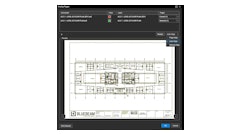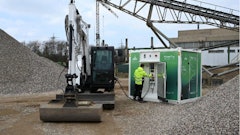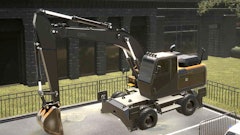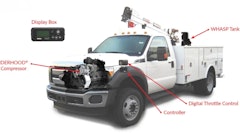
While recordkeeping methods and practices may vary, all contractors create information concerning their operations and projects. Information that is stored in physical files or electronically can be the subject of discovery if a lawsuit is filed. During the discovery process, parties have an opportunity to exchange documents with each other to help them develop the facts and evaluate their claims and defenses. Electronic discovery (E-Discovery) is the exchange of any discoverable information maintained in an electronic format.
As we enter 2012, many contractors will increase their reliance on laptops, BlackBerrys, iPhones, iPads and other gadgets. Although these devices are convenient and may increase efficiency, contractors should also be mindful that the data created and stored on these devices is discoverable in litigation. Information stored on clouds, servers and exchanged through social media is also fair game.
An average construction project could involve all of the following electronic information: contracts, electronic drawings, specifications, jobsite emails, scheduling data, change orders, payroll, personnel files, financials, daily reports, and many other documents. Therefore, the number of electronic files exchanged during discovery can easily exceed several thousand documents on a multi-party construction case. To that end, contractors should take practical steps to simplify the process in addition to meeting any legal obligations.
Be Proactive
Do not wait until a dispute arises to get your documents in order. For example, if a project had significant cost overruns, telling the court and the opposing party that you cannot find key change orders or pay applications will raise red flags about your recordkeeping. Review the files periodically to make sure project documents are being properly stored and filed. If your documents are not organized or accessible, your lawyers and consultants will have to spend additional time searching for information, which will result in increased costs.
Establish Policies
To reduce the number of devices searched, instruct your employees to conduct work business from authorized email accounts and devices. All contractors should have written document retention policies that apply to their electronic and paper documents. Adhering to established electronic data policies can help contractors in the event of litigation, a governmental audit or an employment dispute. Communicate these policies to your employees in writing and enforce them.
Establish a Protocol
Establish a clear protocol with the opposing party seeking the electronic discovery. Limit the scope of the electronic information to a reasonable time period and relevant subject matter. Agree in advance on search terms or keywords. There is no need for an E-discovery service or your lawyers to sort through unrelated correspondence or personal emails. The opposing party is entitled to relevant information; it should not be allowed to go on a fishing expedition.
Shop Around
There are a number of E-Discovery vendors that help litigants retrieve and organize their electronic data. First, decide whether you need to engage an outside vendor. That will usually be dictated by the size of the project and nature of the lawsuit. If you do decide to hire a vendor, obtain proposals and negotiate the cost with the vendor and the opposing party. If possible, utilize the services of your in-house technology professional to minimize costs.
Conduct a Cost-Benefit Analysis
Consider the cost of discovery, as well as the time commitment, when evaluating your settlement position. Estimate how much time your key project employees will spend assisting your attorneys, and any outside consultants or experts, in reviewing and understanding the documents necessary for your case. If E-discovery costs will have a significant impact on your net recovery, you should take that into account when deciding whether you want to proceed with a trial or settlement.
There are also legal consequences for failing to adequately preserve or search for electronic records during litigation. "A party has a duty to preserve all evidence, including electronically stored information…that it knows or should know is relevant to any present or future litigation." Nacco Materials Handling Group, Inc. v. The Lilly Company, No. 11-2415, 2011 WL 5986649 (W.D. Tenn. Nov. 16, 2011) (citing John B. v. Goetz, 531 F.3d 448, 459 (6th Cir. 2008)). If a court finds that a party deleted or failed to preserve electronic information, it can make a negative inference that the information that was not disclosed was harmful to that party. In addition, the opposing party can seek sanctions, attorneys' fees, E-discovery costs, and court costs in addition to the amounts claimed in the lawsuit.
As new technology continues to develop, the methods of collecting information during E-discovery will expand. Advancements in technology can be a double-edged sword in litigation. E-discovery techniques can give parties access to virtually all relevant data and information held by the other party, but the process may also require significant financial and time commitment. If managed properly, E-discovery can help uncover significant amounts of information to help you present your version of the case. If managed improperly, it can expose your company to additional sanctions or liability and distract from the substantive issues. Ask your attorney to explain the discovery process and the rules in your jurisdiction. Be candid, and ask your attorney to help you minimize the E-discovery costs and burdens.
Cheryl R. Treadwell is an attorney in the Construction and Employment Law Sections of Chamberlain, Hrdlicka, White, Williams & Aughtry in Atlanta. Her practice focuses on the resolution of construction disputes, as well as general commercial litigation and employment matters.



























